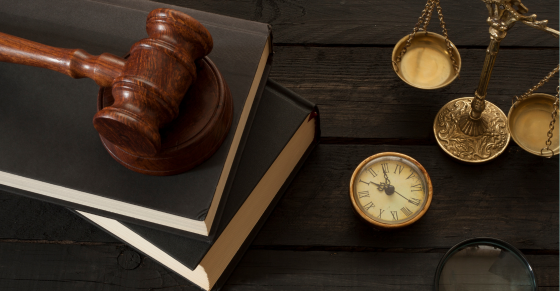Current regulations on leasing out and selling a sole proprietorship in Vietnam
What are the current regulations on leasing out and selling a sole proprietorship in Vietnam? - Hoai Anh (Thai Nguyen)
What is a sole proprietorship?
Pursuant to the provisions of the Law on Enterprises 2020, a sole proprietorship is an enterprise owned by a single individual whose liability for its entire operation is equal to his/her total assets.
A sole proprietorship must not issue any kind of securities.
An individual may only establish one sole proprietorship. The owner of a sole proprietorship must not concurrently own a household business or hold the position of general partner of a partnership.
A sole proprietorship must not contribute capital upon establishment or purchase shares or stakes of partnerships, limited liability companies or joint stock companies.
The sole proprietorship’s owner has total authority to decide all of its business activities, use of post-tax profit and fulfillment of other financial obligations as prescribed by law.
The owner may directly or hire another person to hold the position of Director/General Director. In case of a hired Director/General Director, the owner is still responsible for every business activity of the enterprise.
The sole proprietorship’s owner is its legal representative who will represent it during civil proceedings, as the plaintiff, defendant or person with relevant interests and duties before the court and arbitral tribunals, and in performance of other rights and obligations prescribed by law.

Current regulations on leasing out and selling a sole proprietorship in Vietnam (Internet image)
Regulations on capital of sole proprietorships in Vietnam
Pursuant to Article 189 of the Law on Enterprises 2020, the capital of a sole proprietorship shall be registered by its owner. The sole proprietorship’s owner shall register the accurate amounts of capital in VND, convertible currencies, gold and other assets, types and quantities of assets.
All the capital, including loans and leased assets serving the sole proprietorship’s operation, shall be fully recorded in its accounting books and financial statements as prescribed by law.
During its operation, the sole proprietorship’s owner is entitled to increase or decrease its capital. The increases and decreases in capital shall be fully recorded in accounting books. In case the capital is decreased below the registered capital, the decrease may only be made after it has been registered with the business registration authority.
Regulations on leasing out a sole proprietorship in Vietnam
Pursuant to Article 191 of the Law on Enterprises 2020, the sole proprietorship’s owner is entitled to lease out the entire sole proprietorship, provided a written notification and certified true copies of the lease contract are submitted to the business registration authority and tax authority within 03 working days from the effective date of the contract.
During the lease term, the sole proprietorship’s owner is still legally responsible as its owner.
The rights and obligations of the owner and the lessee to the sole proprietorship’s business operation shall be specified in the lease contract.
Regulations on selling a sole proprietorship in Vietnam
Pursuant to Article 192 of the Law on Enterprises 2020, the sole proprietorship’s owner is entitled to sell it to another organization or individual.
After selling the sole proprietorship, the owner is still responsible for its debts and liabilities that occur before the date of transfer, unless otherwise agreed upon by the owner, the buyer and the creditors.
The sole proprietorship’s owner and the buyer shall comply with labor laws.
The buyer of the sole proprietorship shall register the change of owner in accordance with the Law on Enterprises 2020.
Mai Thanh Loi
- Key word:
- sole proprietorship
- in Vietnam
- Cases of land rent exemption and reduction under the latest regulations in Vietnam
- Economic infrastructure and social infrastructure system in Thu Duc City, Ho Chi Minh City
- Regulations on ordination with foreign elements in religious organizations in Vietnam
- Increase land compensation prices in Vietnam from January 1, 2026
- Determination of land compensation levels for damage during land requisition process in Vietnam
- Who is permitted to purchase social housing according to latest regulations in Vietnam?
-

- Is it permissible to sell notary offices, which ...
- 10:00, 17/01/2025
-

- Emergency response and search and rescue organizations ...
- 10:29, 11/09/2024
-

- Handling of the acceptance results of ministerial ...
- 09:30, 11/09/2024
-

- Guidance on unexploded ordnance investigation ...
- 18:30, 09/09/2024
-

- Sources of the National database on construction ...
- 16:37, 09/09/2024
-

- Notable new policies of Vietnam effective as of ...
- 16:26, 11/04/2025
-
.Medium.png)
- Notable documents of Vietnam in the previous week ...
- 16:21, 11/04/2025
-
.Medium.png)
- Notable documents of Vietnam in the previous week ...
- 16:11, 02/04/2025
-
.Medium.png)
- Notable new policies of Vietnam to be effective ...
- 16:04, 02/04/2025
-
.Medium.png)
- Notable new policies of Vietnam effective from ...
- 14:51, 21/03/2025
 Article table of contents
Article table of contents
